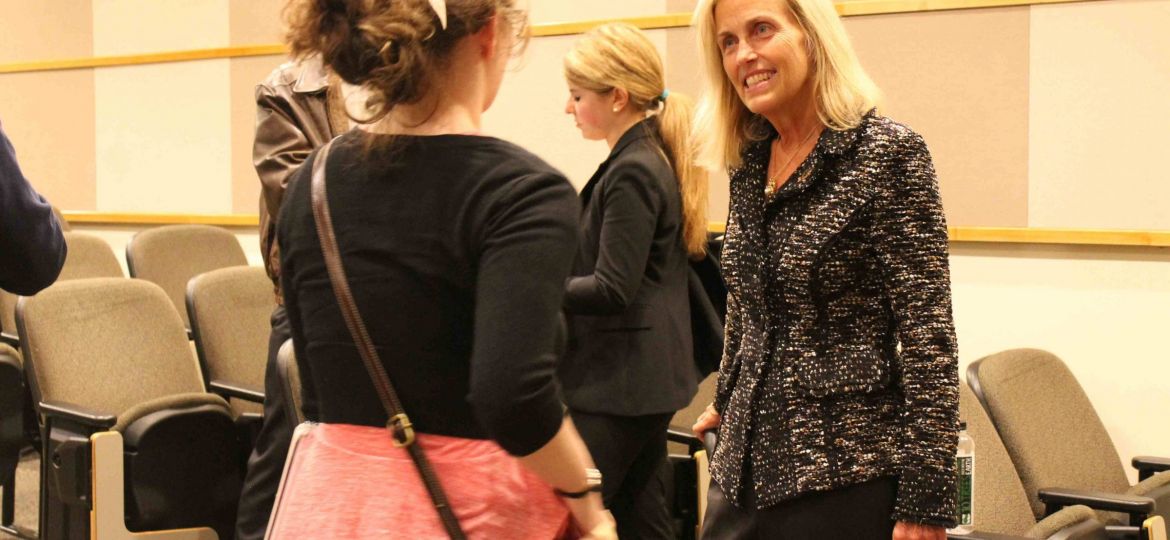
While recent discussions of the national debt have focused primarily on the government shutdown, St. Olaf students turned their attention to the 2008 financial crisis as presented by Gretchen Morgenson ’76 on Tuesday, Oct. 8.
Students filled the seats of Viking Theater as Morgenson, currently the assistant business finance editor and a columnist for the New York Times, took the stage and began a short presentation which aimed to address the question, “Were there any lessons learned from the financial crisis?”
Morgenson, who earned a Pulitzer Prize for her coverage of the financial crisis, cited the lack of accountability in both the public and private sectors and significant regulatory failure as major causes of the financial crisis.
“Lies that made some people a lot of money were at the heart of the financial crisis,” Morgenson said. “Our system can be hugely beneficial to the vast majority of people who participate, but an ethical decision is necessary to make it work.”
Much of Morgenson’s talk sought to examine why unethical behavior has become commonplace in the world of business and finance. She pointed to shifting corporate practices as a partial culprit, including practices that encourage short-term performance orientation coupled with high pay. She argued that these patterns cause employees to have a sense of duty to themselves rather than responsibility to others.
“It’s time for those in positions of power to consider their duties not just to shareholders, but to other stakeholders as well,” Morgenson said. “The belief that executives should only do right to shareholders is a bit myopic. We need them to think outside themselves.”
Morgenson also expressed her concern over the recent increase in financial scandals.
“From a professional standpoint, I shouldn’t complain,” she said jokingly. “It gives me a lot of material. I’m drowning in material.”
According to Morgenson, the outsized financial sector has a lot to do with the growing number of failures and scandals, and these expansions have not ceased in the aftermath of the 2008 crisis.
“After this crisis, which was a banking panic, we now have banks that are larger than they were in the years leading up to the crisis,” Morgenson said.
Morgenson claimed that the attractive nature of a career in finances contributes to the industry’s expansion.
“The financial services industry is a vibrant business. It employs approximately 5.8 million individuals,” said Morgenson, adding that at its most constructive, the industry promotes job creation and powers economic growth. However, she pointed out, many of the innovative ideas in finance leading up to the 2008 crisis likely contributed to the problem.
“The fact is that true financial innovation should help society, not hurt society,” she said.
Morgenson discussed several examples of “sensible voices in Washington looking for a way to reign in the banks,” including a bipartisan bill that was floated in the Senate that would put a cap on bank size and bank leverage, but she was skeptical as to whether the bill would lead to anything concrete.
Morgenson concluded the presentation by acknowledging that she does not know how to stop these practices, but she believes that “those of us in the media can do our part by shining a light in the dark corners where these practices flourish.”

